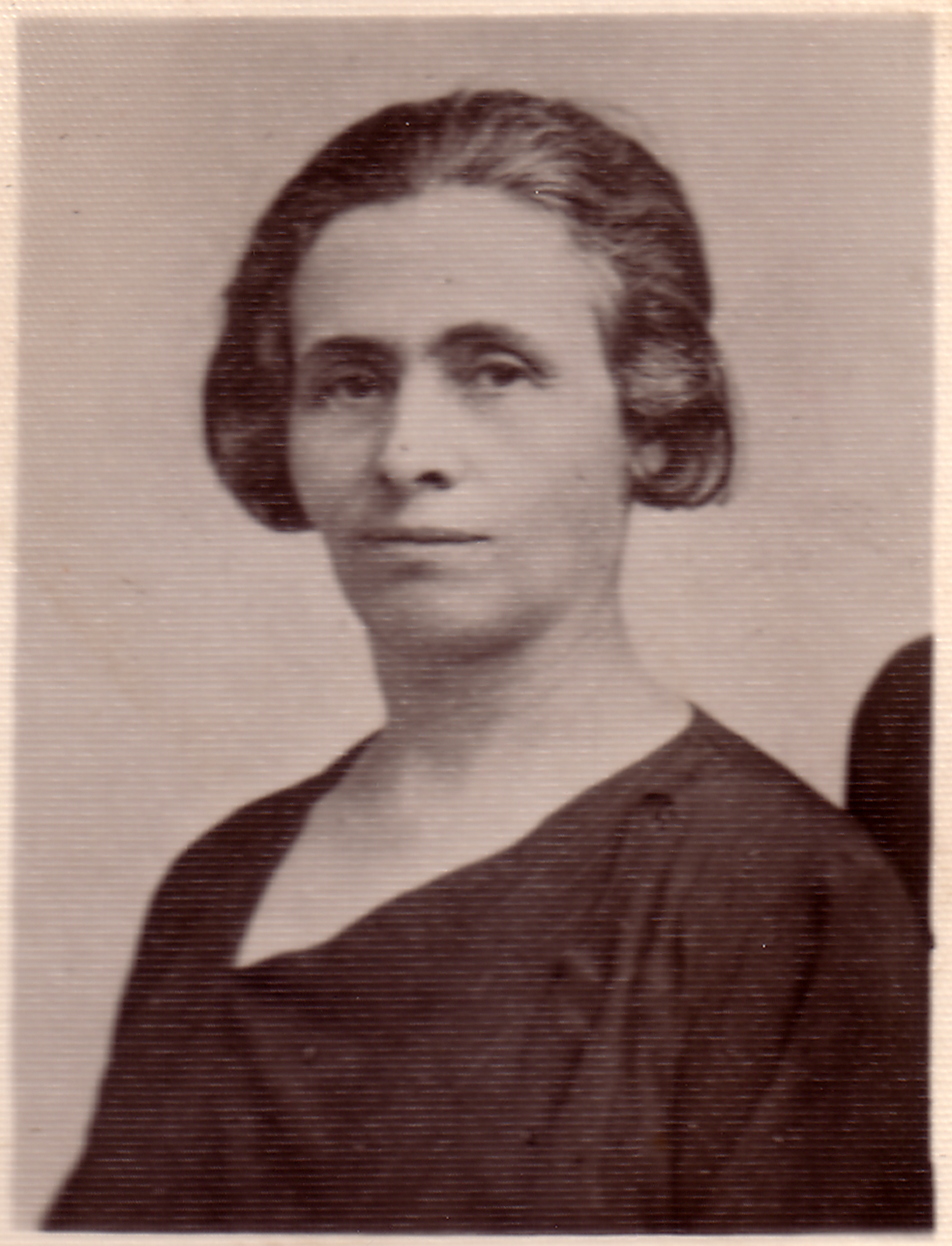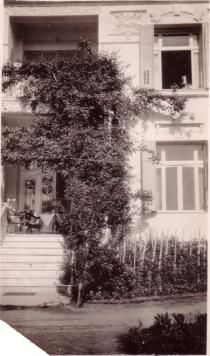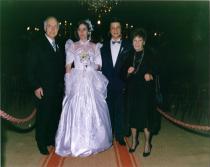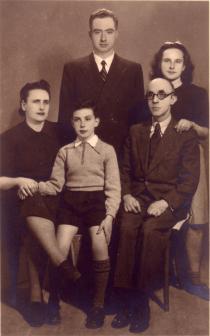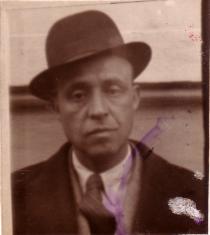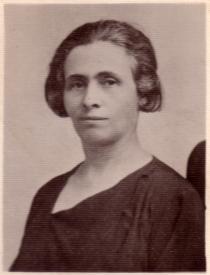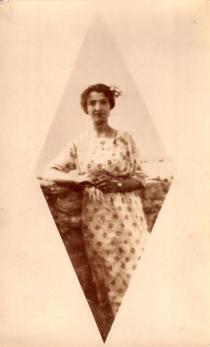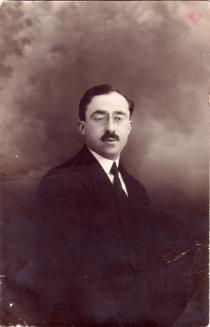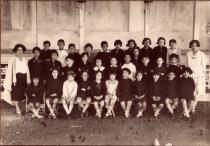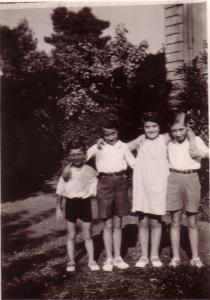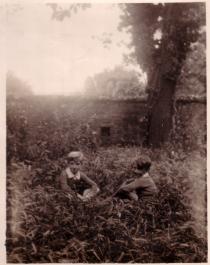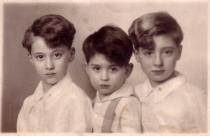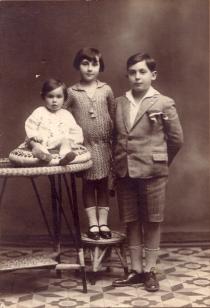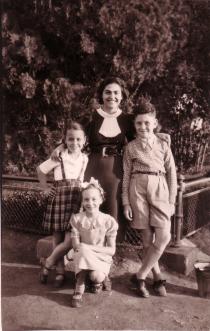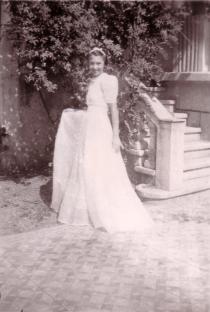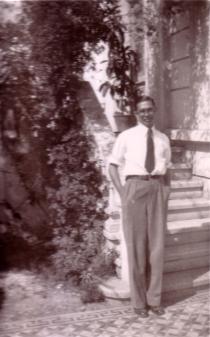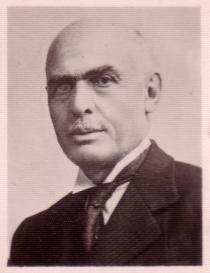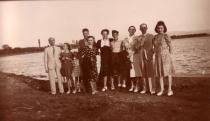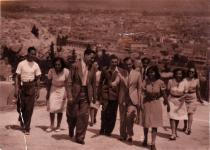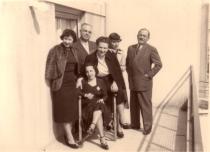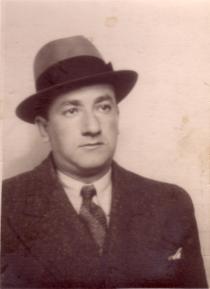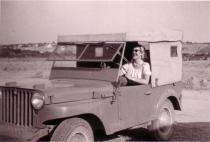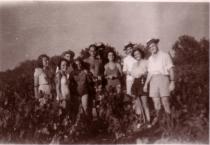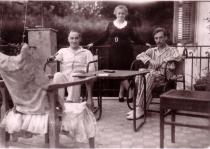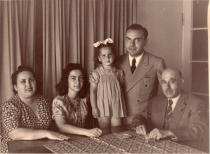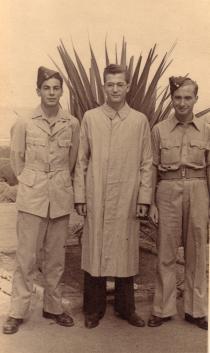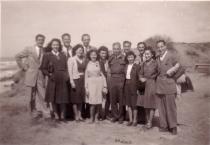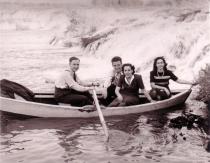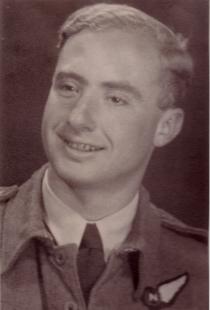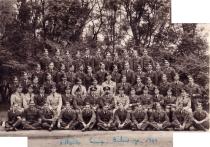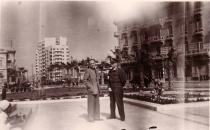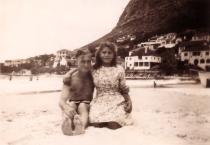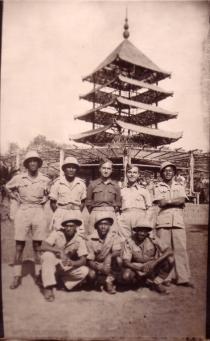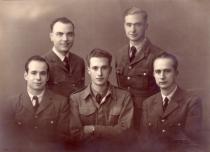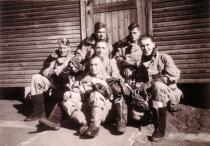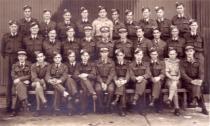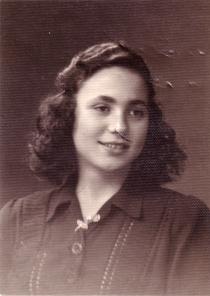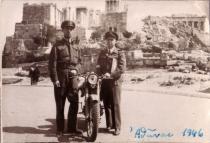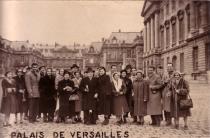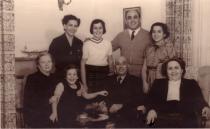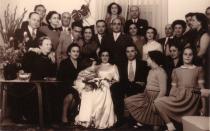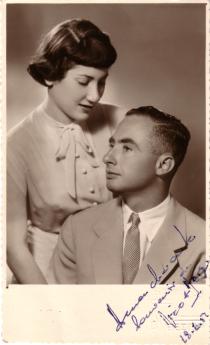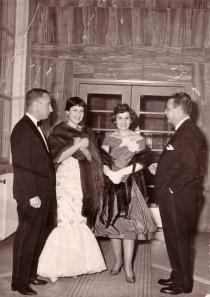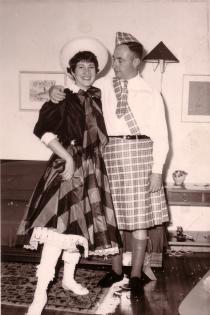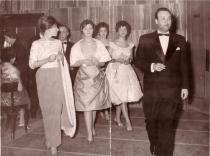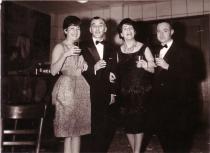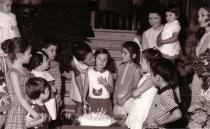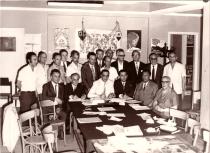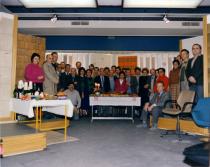This is a picture of my step maternal grandmother, Mathilde Saltiel.
Mathilde was of the same age as my father. My father was born in 1889, she must have been born either in 1890 or in 1888, around then.
Mathilde Gattegno spoke Ladino really well and French fluently. She also spoke Greek, but not as well. She couldn’t write in Greek, but she spoke it, especially because most of her maids were Greek. She didn’t speak any Turkish. She went at school at the Alliance, where she learned French.
Before she got married during the First World War, when the allies were here, she opened, or they opened for her, a shop which sold souvenirs for the soldiers. And it went really well. She was pretty and she spoke French, something that the soldiers couldn't find everywhere.
At the time of the First World War, many women started working out of necessity. They would sell things like that. After she became a widow, or before she got married, she also worked at her brothers’ school, the Gattegno.
She got married to grandfather Daniel after the Great Fire of 1917. She and him had a big age difference. Mathilde had a daughter from her first wedding.
Grandfather was widowed, she too, and so they got married. It was then a custom to marry the sister of your wife if both of you were widowed. And even the Jewish religion suggests doing so.
I don't think that her relationship with Daniel was very great, because he was a bit indifferent. Their relationship was more duty based. It seems that grandfather was very much in love with his first wife.
His second wife was also very pretty and educated, but still, he couldn't love her as much as his first. He wouldn’t treat Mathilde the same way he treated his first wife.
It was a different thing for him. And also he didn’t take care of his daughter as he did with the other children. That was grandmother’s complain as was her daughter’s, Daisy.
The lumber merchants were the first profession that worked without a lunch break. They worked from seven in the morning until four in the evening.
They ate lunch at work. My grandfather, as it used to happen at the time, had an usher in the shop, who they used to call servant. He would send him from Aggelaki Street to his house on a tram.
Grandmother had three of these pans that one fits inside the other. He would send him there, and grandmother would get them ready. She would put in one of them the salad, in the other the main dish and in the third one the fruit. And he ate there.
Mathilde would either eat alone at noon ,or, with her daughter. In the evening, someone would come and visit, or, she would go and visit somebody else.
Grandfather would get home around seven-seven thirty and they would have dinner together. They had a nice courtyard that overlooked the sea. In the summer, they would eat out and in the winter, inside.
Mathilde read a great deal. She read those French magazines as well. I don’t think that she read the newspaper. Maybe she would have a look at it. She also read literature, everything in French. She wasn’t buying them, she borrowed them from libraries that would loan books.
The B’nei B’rith seems to have had a lending library. The same with the Alumni Association of the Lycee School. She would either go out to get the books, or, she would send her daughter. She was a very educated woman.
I had a great relationship with my grandmother. Many times if the two of us would chat, she would tell me her worries and complains. I loved her very much. She brought me up.
Mathilde didn't keep track of political or communal events. She only followed the international news. Then she also had a radio. She didn't know Greek, so she would listen to the French broadcasts. She would listen to whatever they broadcasted. They got the radio very early.
Grandfather Daniel was the first one to put a telephone in the house in order to talk on the phone from the house to the shop. Because he was out from early in the morning until late in the evening, he had a phone.
Grandmother Mathilde was involved in a couple of charitable associations. I remember them coming around the house, to collect the contributions.
She only went to the Synagogue on special occasions, or if there was a Bar Mitzvah. Men used to go more often to the Synagogue, like grandfather did sometimes. Women went too, but in our family they didn’t.
I don't remember her reading prayers in the house. In comparison with grandfather, I think that she was less religious than him, as she was also younger than him.
She kept the Kosher, she would buy kosher meat, but they would mix the pans and they didn’t have separate plates. There were these candles in the house that we light when there is a religious day. She would hold this custom and light them.
She would take the tram and go to the market to do her shopping. She would go down town alone, or she would take one of her daughters with her. Usually, when she went shopping, she would either take the one girl or the other. They bought fabrics and made dresses out of them at home.
Mathilde was dressed in a European style. She would not buy very expensive things, mostly simple. She also went out. She went out much more than her sister. She never went to sit in a patisserie.
This never happened. She went to visit friends or relatives. She also had her second or third degree relatives that she used to visit as well.
The families were much larger then. She would go out once in a while to the cinema with her daughter. Mother or Aunt Lily would also take her out.
